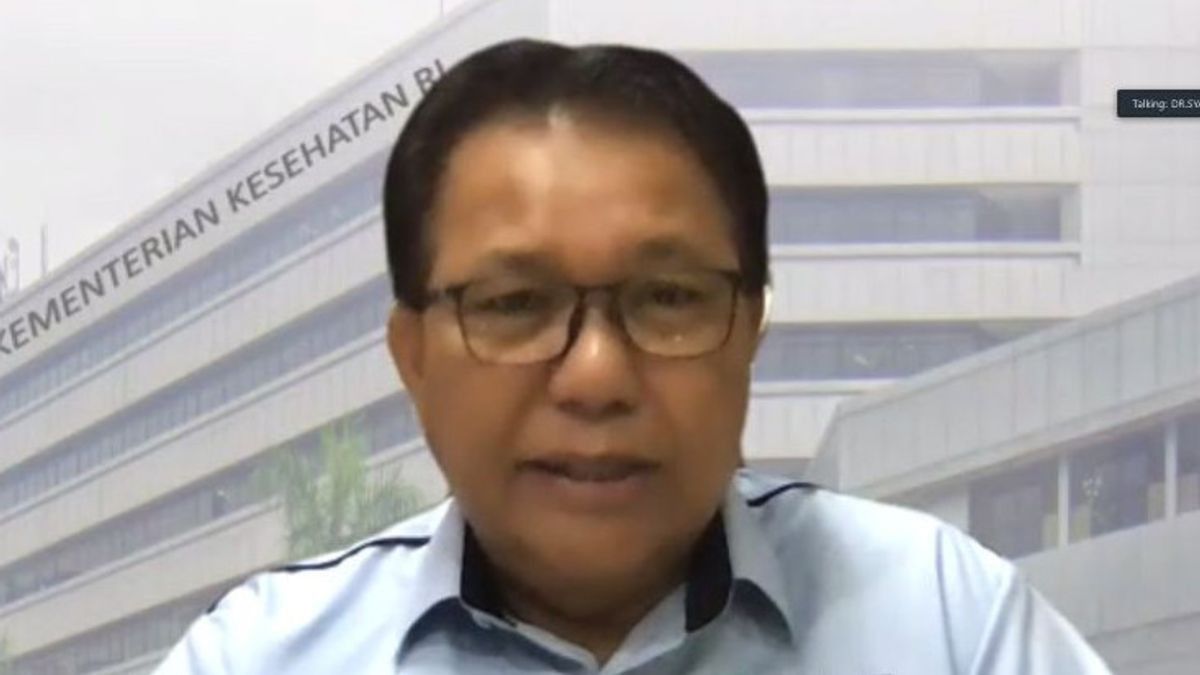JAKARTA - Until now, the government has not yet established an extraordinary incident (KLB) status for cases of acute progressive kidney failure in Indonesia, even though the death toll has reached 56 percent.
Spokesperson for the Ministry of Health, Mohammad Syahril, claimed that the government had responded to the case of acute kidney failure quickly and comprehensively even though the KLB status was not determined.
"We have done it quickly and comprehensively in response to the case or the condition of the KLB," Syahril said in a virtual press conference, Tuesday, October 25.
Syahril explained, the Ministry of Health together with the Food and Drug Supervisory Agency (BPOM), the Indonesian Pediatrician Association (IDAI), and other parties have conducted research, implemented bans on the use of sirop drugs, announced a list of drugs that are still safe to use, and brought in an bidder for acute kidney failure from abroad.
Meanwhile, continued Syahril, in the Law on Outbreaks of Infectious Diseases and Regulation of the Minister of Health (Permenkes) Number 1501 of 2010, the KLB status is applied to infectious diseases. Syahril admitted that the determination of the KLB status in acute kidney failure actually violates the law.
"With this situation, we have prepared a matter of preparation that this situation is the same as the KLB, only the name (not determined), so as not to violate the previous laws or regulations that underlie the determination of the status of the KLB in an area or in a country. our country, "explained Syahril.
"Hopefully what the Ministry of Health is doing together with others are responses that show that our situation is more than the KLB response, including financing imposed on the government," he continued.
Previously, an epidemiologist from Griffith University Australia, Dicky Budiman, said that efforts to overcome acute kidney failure are currently not optimal if the government does not determine the status of the KLB.
This is because currently many local governments have difficulty handling this disease due to budget constraints and health service facilities in their respective regions.
"Patients in the regions, for example for patients from Baubau to (referral hospitals in) Makassar or Kendari, what do you want to use there? Boats? You can't, you have to plane. Where does the money come from? Let alone the residents, the local government also doesn't necessarily have money," said Dicky in a virtual discussion, Saturday, October 22.
According to him, what is feared if the handling of acute kidney failure cases is only in 14 referral hospitals, it is worsening the patient's condition because treatment takes time.
"The current obstacle is to gather patients and take time, finally patients die too. So, it means that the KLB status is important to help the community. Don't look at Jakarta, there are many cases, but also in areas outside Jakarta, I think there are much more," said Dicky.
The English, Chinese, Japanese, Arabic, and French versions are automatically generated by the AI. So there may still be inaccuracies in translating, please always see Indonesian as our main language. (system supported by DigitalSiber.id)
Most Popular Tags
#Prabowo Subianto #New Year #Mother's Day #nataru #NatalPopular
23 Desember 2024, 00:04
23 Desember 2024, 00:55
23 Desember 2024, 01:41








